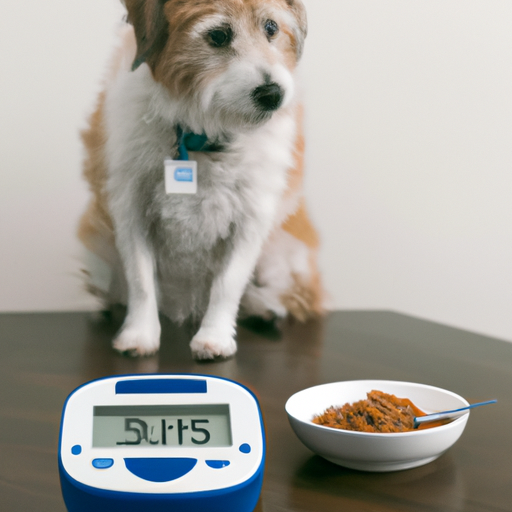As a caregiver, it’s imperative to understand the health conditions that can affect our beloved canine companions. One such condition is hypoglycemia, or low blood sugar. Just like in humans, maintaining a balanced blood sugar level is crucial for your dog’s overall health.
1. Understanding Hypoglycemia
Hypoglycemia in dogs is a condition marked by an abnormally low level of glucose in the bloodstream. It’s more than just skipping a meal; it’s a serious health concern that can lead to seizures, loss of consciousness, and even death if not promptly addressed.
2. Causes of Hypoglycemia in Dogs
Several factors can contribute to low blood sugar in dogs. The most common causes are:
- Insulin-dependent diabetes: This is when the pancreas overproduces insulin, causing a drop in blood sugar levels.
- Prolonged fasting or malnutrition: If your dog goes a long time without eating, their body will use up the glucose reserves and cause a drop in blood sugar levels.
- Overexertion: Extreme physical activity can drain the glucose reserves in your dog’s body.
- Severe illness: Conditions like liver disease, sepsis, and cancer can cause hypoglycemia.
| Causes of Hypoglycemia | Symptoms |
|---|---|
| Insulin-dependent diabetes | Increased thirst, frequent urination, weight loss |
| Prolonged fasting or malnutrition | Weakness, lethargy, decreased appetite |
| Overexertion | Fatigue, muscle tremors, collapse |
| Severe illness | Varies depending on the condition |
3. Recognizing the Signs of Hypoglycemia
Early detection is key in managing and treating hypoglycemia. The common signs include:
- Lethargy or weakness
- Loss of appetite
- Trembling or shivering
- Unusual behavior or confusion
- Seizures
4. Treating and Preventing Hypoglycemia
Treatment for hypoglycemia involves restoring and maintaining a healthy blood glucose level. This might involve feeding your dog a meal or a vet administering a glucose solution intravenously.
Prevention strategies include:
- Regular feeding schedule
- Balanced diet
- Regular vet check-ups
- Monitoring exercise levels
5. Frequently Asked Questions (FAQs)
Q: Can hypoglycemia in dogs be cured?
A: Treatment can manage symptoms and prevent episodes, but underlying causes may require ongoing care.
Q: Can a dog die from low blood sugar?
A: If left untreated, hypoglycemia can be lethal.
Q: How do I raise my dog’s blood sugar?
A: A quick solution is giving your dog a small amount of honey or corn syrup.
Remember, as a caregiver, your role in your dog’s health is crucial. Stay vigilant, know the signs, and don’t hesitate to seek veterinary care if you suspect hypoglycemia in your dog.



